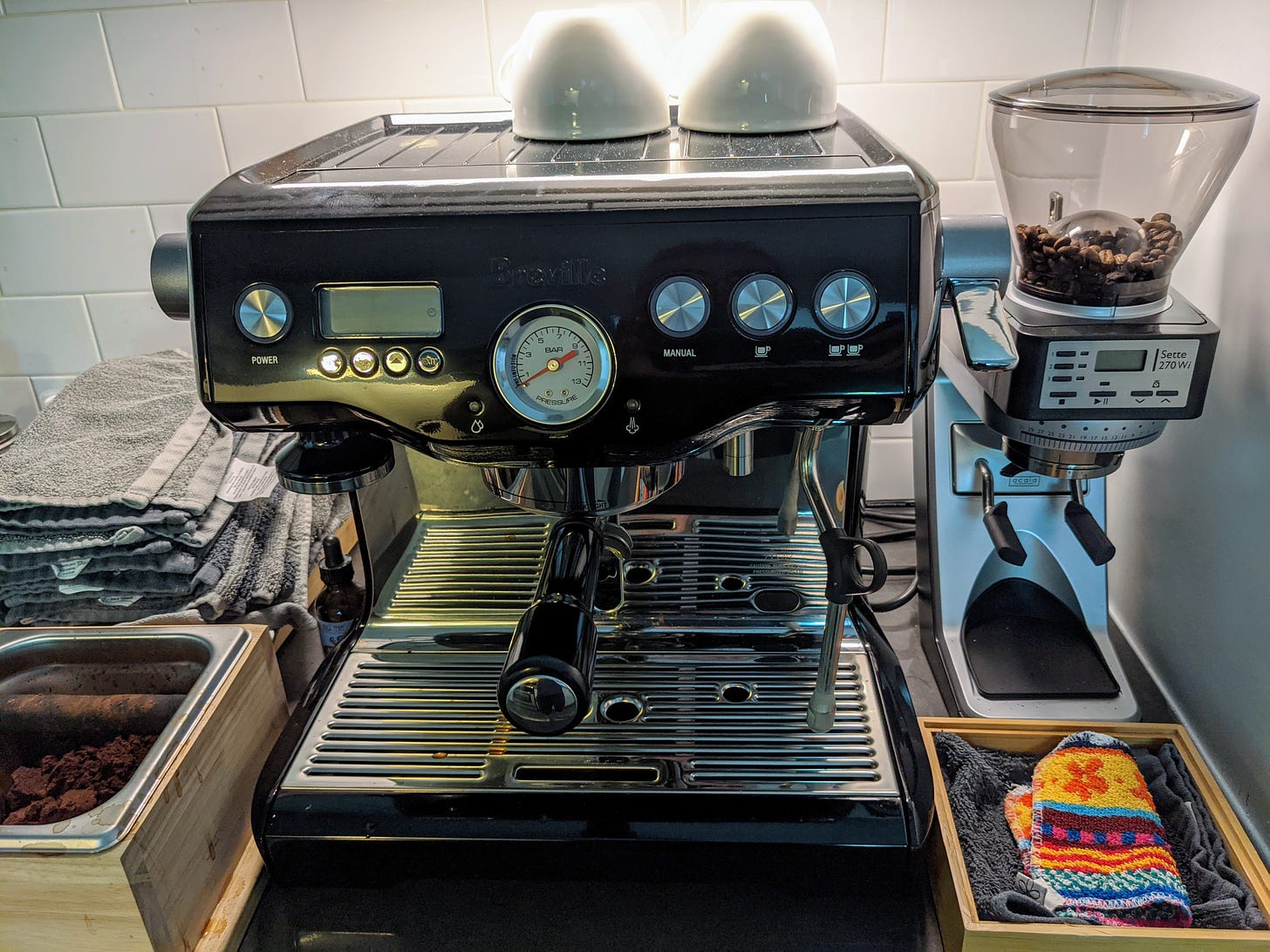It started with an espresso machine. I was newly single, living in a Red Hook one bedroom, and facing a strange new world. The pandemic had just started. My neighbors were not so careful with "social distancing" in the laundry room, so I washed my clothes in the bathtub.
A nearby funeral home had run out of space for the dead, and started stacking bodies in a U-Haul on the street. My day job in the software industry was to automate various code improvements in Google's sprawling, decades old repositories. I needed a distraction. The espresso machine, a "dual boiler" from Breville, offered a challenge. It would be easier than making bread.
I took hand written notes on each shot. There was a careful balance of grind size, tamping technique, and temperature. Some shots would "channel" and come out watery, other shots would block the steam entirely and be excessively "ristretto". I discovered James Hoffman, a coffee guru and YouTube mentor. My notebook filled with entries over the next six months, tracking hundreds of shots. Eventually I had the perfect shot down to muscle memory, and could appreciate that the bean origin and roast really matter.
A year later and freshly vaccinated, the world was opening up again. Thankfully my job was intact, but like many, I was questioning corporate life. I had taken a "break" from software earlier in my career, to pursue a film degree, followed by feature filmmaking, and finally financial insolvency. I had agreed to an exclusive seven year DVD deal for my feature, just before streaming services put nearly every video rental store in the world out of business. The software industry took me back into the fold, and it took fourteen years to rebuild my savings.
If I left the software industry again, I would want to spend my days doing something I could enjoy for decades, but without the same risk as filmmaking. I chose coffee. What could go wrong?
My older brother was skeptical. "Do you have a business plan?" Of course not. I was a software engineer and could figure it out as I went along. Well, I was of course aware that coffee was a saturated market. I felt that the challenge would be one of differentiation - to find a new twist on an ancient craft. So, a business plan was irrelevant until I could find the innovation that would set the company apart.
I took a roasting class from Shared Roasting in Brooklyn Navy Yard. They taught me how to "sample roast" as well as operate modern commercial roasters. I briefly looked into purchasing "green" bags of coffee directly from farmers, but it quickly became evident that I would need a knowledgable importer. However, to set up an account, I would need to project a business identity.
"Beim" (rhymes with "name") came from "Tudo Bem" - or "all good" in Portugese. It was a nod to my dad's later marriage into a Brazilian family and his love for that culture. He had always wanted to start a small business, but died while working for the federal government. Clearly, there was no time to start like the present. My sister designed a logo, which was perfected by a local graphic designer. Beim Coffee was born.




You are such a daring entrepreneur and the fam looks forward to your next brilliant project.
I'm embarrassed that I called it "Beam." Great storytelling, Per. I look forward to the next part(s).